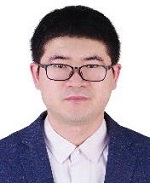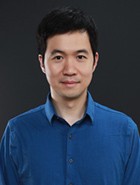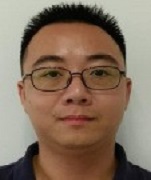Special Session: Advanced Array Antenna Design and Signal Processing Techniques
Array antennas and signal processing techniques are of critical importance in modern electronic systems, such as radar and communication system, vehicular system, unmanned aerial system etc. Firstly, as the front end of an electronic system, an antenna with wide bandwidth, high gain, and compact size is always demanded to guarantee the high level of system performance. Moreover, limited and complex electromagnetic environment reserved for antenna location puts forward higher requirements on antenna performance. Secondly, signal processing techniques are essential to enhance the desired signal and mitigate nuisance signals, thus improving the system performance. The performance of an electronic systems can be further improved by properly utilizing signal processing technique. The increasing development of radar and communication systems further promotes new technologies in antenna design and array signal processing. A great number of research groups are working on such active and frontier topics. With the in-depth investigations of array antenna, several novel array antenna frameworks are born, including the frequency diverse array, waveform diverse array, massive multiple-input multiple-output array, opportunistic array, and so on. To further promote the innovative development of basic theories and key technologies of array antenna and signal processing technique, this Special Issue aims to gather the latest advanced research progress in the field of antenna design and array signal processing technique for various applications. Potential topics include but are not limited to the following:
- Integrated communication and sensing
- Antenna and array antenna design
- Wideband/conformal/compact antennas
- Antenna miniaturization techniques
- Waveform optimization and waveform diversity
- Multiple-Dimensional Signal Processing
- Intelligent/Cognitive Algorithms
- Detection, Estimation, Tracking
- Clutter Suppression
- Anti-Jamming Technique
Important Dates:
Submission Deadline: March 25, 2026
Notification: April 25, 2026
Registration: May 10, 2026
Submit Method:
1, submit it via the link: http://www.easychair.org/conferences/?conf=icicsp2026 (after entering the link, click on the corresponding topic)
2, send your manuscript to icicsp@vip.163.com with subject "Submit+Special Session-2+Paper Title". (请通过邮件发送稿件,邮件题目:Submit+Special Session-2+Paper Title)
CHAIRMANS:

Prof. Jingwei Xu, Xidian University, China

Prof. Changzhan Gu, Shanghai Jiao Tong University, China

Assoc. Prof. Long Chen, Northwestern Polytechnical University, China

Assoc. Prof. Weize Sun, Shenzhen University, China
